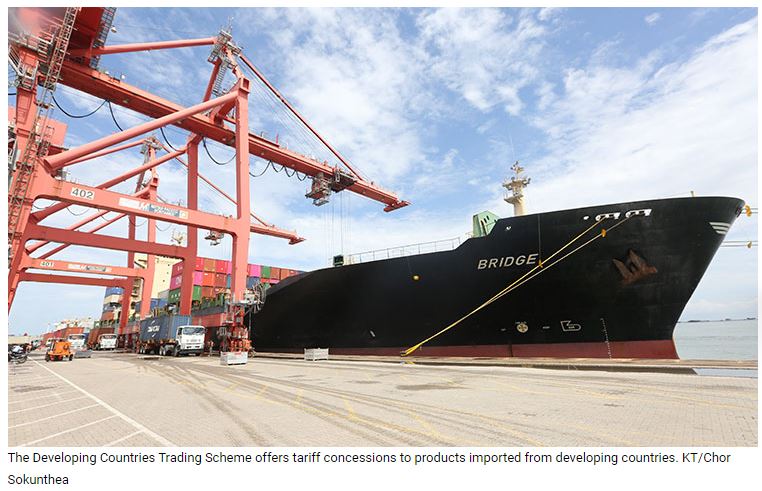Cambodia-UK trade to soar under new scheme
In a post-Brexit strategic move that distances it further from European Union countries, the UK will replace the Generalised Scheme of Preferences (GSP) for the developing countries with a new trading instrument early next year.
Named the Developing Countries Trading Scheme (DCTS), the new instrument offers additional tariff concessions to products imported from developing countries. Cambodia is among the 65 beneficiaries and the trade between the two is expected to grow further under the new scheme.
While unveiling the scheme the other day, UK’s Secretary of State for International Trade, Anne-Marie Trevelyan, described the move as “taking back control of the country’s trade policy”. By encouraging the import of goods from Least Developed Countries (LDCs), the UK also aims to check its rising inflation, which currently is the highest in 40 years.
The UK’s Department for International Trade estimates that businesses in the country will be able to save £750 million a year on reduced import costs under the new scheme. This saving can be passed to the shoppers.
The scheme will also remove certain seasonal tariffs while simplifying complex trade regulations such as rules of origin. The tariff cut is more generous than that of the equivalent EU scheme and will mean 99 percent of goods imported from LDCs will enter the UK without any tariff.
“The new scheme offers developing countries one of the most generous sets of trading preferences from any (developed) country in the world. The scheme demonstrates the UK’s commitment to building long-term, mutually beneficial relationships with emerging economies that are home to more than 3.3 billion people,” Trevelyan said.
“We are also using our status as an independent trading nation to go beyond what is offered by the European Union (EU),” she added.
“The DCTS also cuts red tape for developing countries, for example by simplifying rules of origin requirements. This helps the world’s poorest countries to export to the UK and play a more active part in the fast-growing global supply chains,” she noted.
“The scheme to a great extent helps developing countries to diversify their exports and grow their economies, while British households and businesses can benefit from lower prices and more choices,” she said.
The DCTS applies to countries that currently benefit under the UK’s GSP including 47 countries in the GSP LDC Framework and 18 additional countries or territories classified by the World Bank as low income (LIC) and lower-middle income (LMIC).
The department claimed that DCTS is one of the most generous preference schemes in the world. It provides duty-free, quota-free trade to LDCs on everything but arms and duty-free, quota-free trade on 85 percent of eligible goods to most LICs and LMICs.
LDCs constitute around 13 percent of the world’s population but only account for around just one percent of global trade in goods. Addressing the barriers to trade such as ‘rules of origin’ can be an effective way to support LDCs entering global value chains.
Under the new scheme, more than 85 percent of eligible lines now benefit from zero tariffs in DCTS Enhanced Preferences, covering trade worth around £2 billion.
Meanwhile, the UK has retained the power to suspend a country’s preferential trade partnership for serious and systematic violations of human rights and labour rights based on international conventions. The government is expanding the list of international conventions that form the basis for suspension. The new list includes conventions on anti-corruption, climate change and the environment.
The UK’s GSP has been in place since January 1, 2021. The UK GSP largely replicated the EU GSP, providing continuity of trade access to UK markets for 70 developing countries. The scheme reduced and removed those tariffs reduced or removed by the EU GSP.
Source: https://www.khmertimeskh.com/501136142/cambodia-uk-trade-to-soar-under-new-scheme/


 English
English




